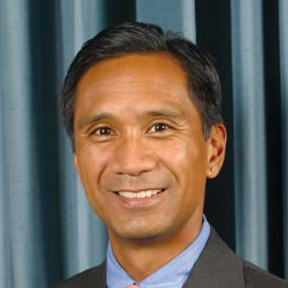When President Bush announced his intention to deploy more than 20,000 additional troops to Iraq—most of them for security in Baghdad—he stated that “there will be 18 Iraqi Army and National Police brigades committed to this effort” but also that “to succeed, our commanders say the Iraqis will need our help.” That the Iraqis continue to be in desperate need of U.S. help was apparent when Iraqi security forces were nearly overwhelmed by renegade milita fighters in a recent battle near Najaf. According to the deputy governor of Najaf province, the militia forces “had more capabilities than the government.” The fact that both U.S. air and ground forces had to be called in to stave off defeat is significant because only a month ago security authority over Najaf was handed over to the Iraqis in what was hailed as a major step forward in improving security and strengthening the authority of the government.
If the battle in Najaf is indicative of the state of Iraqi capabilities, how much faith should we have when the president contends that the proposed surge provides “the force levels we need” and that “we will prevail”—especially when more than a year ago Vice President Cheney famously declared on CNN’S “Larry King Live” that the Iraq insurgency was “in the last throes”?
Indeed, the track record of the administration and its cheerleaders needs to be closely scrutinized. Former Deputy Defense Secretary Paul Wolfowitz, who was the Pentagon’s biggest advocate for taking the country to war in Iraq and claimed that Iraqi oil revenues pay for post-invasion reconstruction, is now the president of the World Bank. Former Undersecretary of Defense for Policy Douglas Feith, who headed up the ill-fated Office of Special Plans responsible for cooking the books about the threat posed by Iraq and was a champion for Iraqi con artist Ahmed Chalabi, is a distinguished practitioner in national security policy at Georgetown University. Bill Kristol, the don of the neoconservative Weekly Standard, has been named a columnist for Time magazine. And Thomas Friedman—who led the liberal hawk charge into Iraq, often alongside Bill Kristol—is still a fixture on the pages of the New York Times. If any of these people were your stockbroker and told you to bet the ranch on Enron in late 2001, would you still be letting them give you financial advice?
The truth is that a surge of 20,000-plus troops is not likely to make any significant difference in Iraq. Currently, the United States has about 130,000 troops in Iraq. So the surge will bring the total to 150,000 troops, which is about the same number we had in Iraq during the fall of 2005. But if 150,000 U.S. soldiers could not impose security more than a year ago, why should we expect that they will be able to do so now? The harsh reality is that—from a hard-nosed, military tactical operational perspective—to even have a fighting chance of ending the violence in Iraq a much larger ground force is needed. The history of the British experience in Northern Ireland (a close parallel to America’s precarious position in Iraq) suggests a need for as many as 20 soldiers per 1,000 civilians to have any realistic hope of restoring security and stability. With a total population of about 25 million people, that translates to a force of 500,000 troops in Iraq. Baghdad alone (6 million people) would require 120,000 soldiers or nearly all of the current ground forces deployed in Iraq.
Moreover, the vast majority of troops would need to be combat troops to patrol the streets and keep a lid on violence. But the most optimistic estimate of the so-called “tooth-to-tail” ratio of combat-to-combat support units in Iraq is 1:1, which means that only half the troops are combat units—or 75,000 of the 150,000 U.S. soldiers in Iraq after the surge. A better “best case” estimate is a 1:4 ratio, which would mean only 30,000 combat troops out of a total force of 150,000. Any way you do the math, the surge comes up short.
Beyond the number of troops needed, the reality of occupation demands a willingness to use indiscriminate and harsh, even brutal, tactics to suppress all violence and opposition in order to impose security and order—much as the British did to crush the Mau Mau Rebellion in Kenya in the 1950s. And if British experience is a good guide, U.S. forces would have to remain in Iraq for years to come—perhaps a decade or longer.
Ultimately, the surge will do more to swell the ranks of the insurgency to throw off the yoke of foreign military occupation, resulting in even more violence directed at American troops and Iraqi civilians. And more and more Muslims around the world will come to hate America, giving them a powerful reason to become terrorists. With over a billion Muslims in the world, tactical success (if it could be achieved) in Iraq would yield a larger, and perhaps catastrophic, strategic defeat—much the same as what happened to the Israelis after their incursion into Lebanon that resulted in even greater support for Hezbollah.







